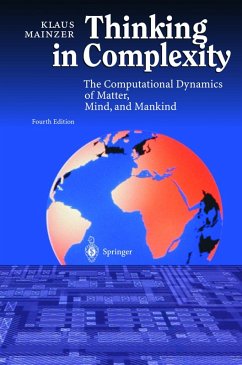From the reviews of the fourth edition:
"... this highly recommended book is a wonderful resource for intuitive basic ideas in the need of rigorous formulation." (Albert A. Mullin, Zentralblatt MATH)
"This book is ambitious, incredibly erudite with 22 pages of references, and is indisputably clearly and beautifully written and illustrated. It is perfectly suited to a first course on the science of complexity. Even beginners and young graduate students will have something to learn from this book." (André Hautot, Physicalia)
"Readers of this book will enjoy Mainzer's exposition, which is based on a tight coupling between classical and historical concepts from Plato and Aristotle to modern, mathematical and physical developments ... . takes pains to point out essential differences between classical science and the science of complexity. ... Thinking in Complexity is an outstandingly readable book." (Anutosh Moitra, The IndustrialPhysicist)
Dieser Download kann aus rechtlichen Gründen nur mit Rechnungsadresse in A, B, BG, CY, CZ, D, DK, EW, E, FIN, F, GR, HR, H, IRL, I, LT, L, LR, M, NL, PL, P, R, S, SLO, SK ausgeliefert werden.









